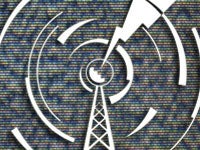 |
A new Federal Communications Commission report dismissed a key objection to tapping the unused “white spaces” between television channels for unlicensed, broadband wireless Internet.
The finding marks a major victory for supporters of using the wireless spectrum for new Internet devices and services. Backers of the idea include some of the largest tech firms, including Google and Microsoft, as well as advocacy groups seeking cheaper broadband options for rural areas.
The concept is opposed by major broadcasters, who had complained that using white spaces would interfere with television signals on adjacent spectrum.
Today’s report from FCC engineers challenged those objections, however, finding that testing prototype white space devices proved that they would not interfere with broadcast channels. As a result of the findings, the commission can also now begin authorizing manufacturers to make white-spaces-compatible equipment, an FCC spokesperson told InternetNews.com.
“It will allow the development of new and innovative types of unlicensed devices that provide broad data and other services without disrupting TV,” testers from the FCC’s Office of Engineering and Technology wrote in the report, which is available here in PDF format.
Still unresolved is whether the FCC will open white spaces to unlicensed usage. The regulatory agency now plans to hold its vote on the matter during its monthly meeting on Nov. 4.
FCC Chairman Kevin Martin said during a press conference earlier today that commission’s overall goal is to use the spectrum in the most efficient manner.
“We’ve begun to see a transformative effect in the wireless world, and those same emerging technologies are the ones we hope will help pave the way for the unlicensed commercial use of TV white spaces in the near future,” he said in a statement.
The spectrum is seen as highly valuable because it can reach long distances, penetrate thick walls and circumvent environmental challenges like mountain ridges or dense foliage, which makes it appealing to groups espousing greater broadband connectivity for rural communities.
The plan to tap white spaces for broadband Internet connectivity has also drawn the attention of technology titans like Dell, Microsoft (NASDAQ: MSFT) and Google (NASDAQ: GOOG), who are hoping to benefit from expanded use of wireless devices and services.
Just three weeks ago, Google co-founder Larry Page asked the FCC to issue an order freeing up white spaces that he dubbed “Wi-Fi on steroids.”
On the other side of the issue are big-gun broadcasters such as NBC and ABC. Critics of unlicensed white spaces have consistently charged that the spectrum is best left as buffer zones between TV channels.


